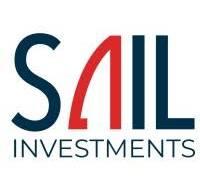
SAIL Investments - SAIL Investments
LinkedIn ProfileSAIL Investments transitions its borrower as well as its associated supply chain to a sustainable business model, safeguarding Natural Capital Asset resources and thus benefitting the investee's market position and its business model's resilience. Consequently, SAIL's investors benefit from predominantly senior secured, covenant heavy (incl. sustainability maintenance covenants) credit and relative value through attractive risk-adjusted financial returns. At the same time SAIL, in terms of climate and nature benefits, generates high impact and sustainabilty multiples for every USD invested, hard to find elsewhere.
About Organisation
SAIL identifies core industry sectors the world will need well beyond 2025 and which need to transition towards fully sustainable modes of production.. The first such sector SAIL selected are the Food & Agri commodities supply chains, globally. A USD 13 trillion sized sector critical from a food security perspective, yet with a high climate and nature downside risk profile. Through its investment approach, SAIL protects natural capital assets and the ecosystem services derived from it by protecting tropical forest and generating nature positive outcomes.

